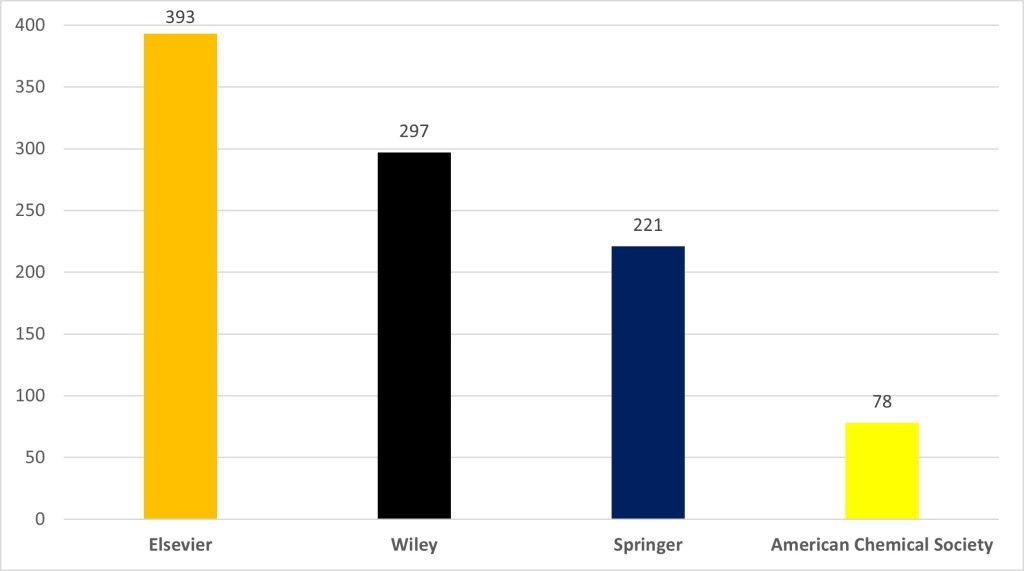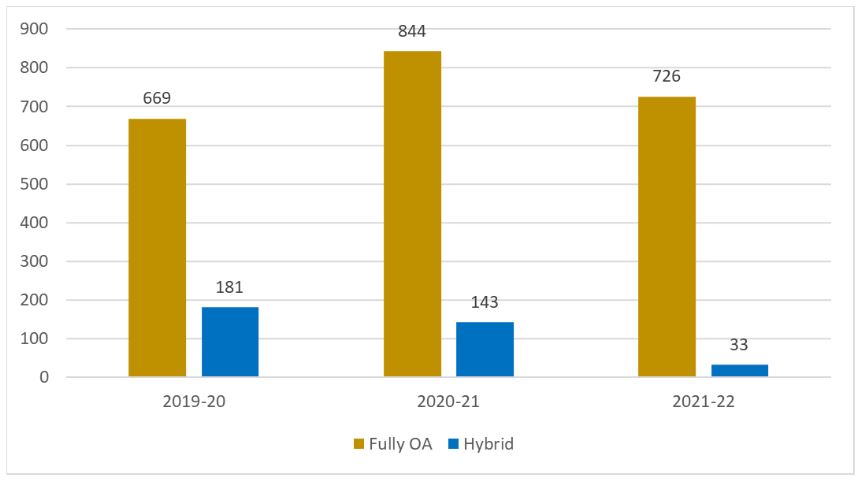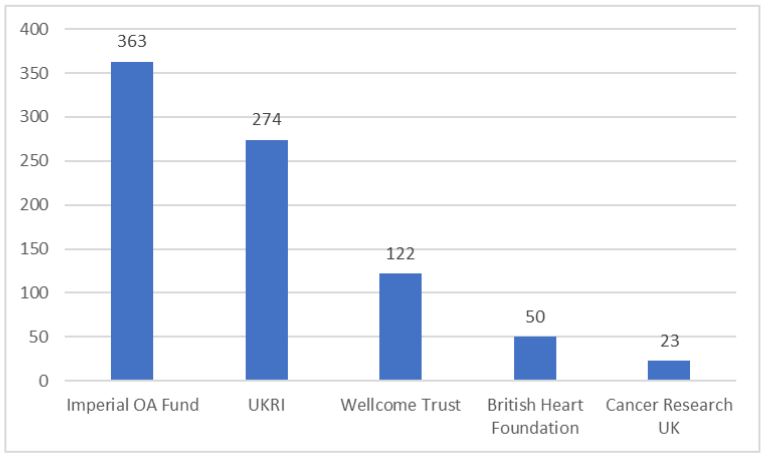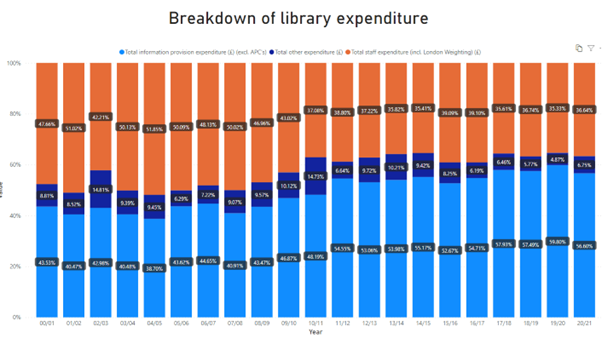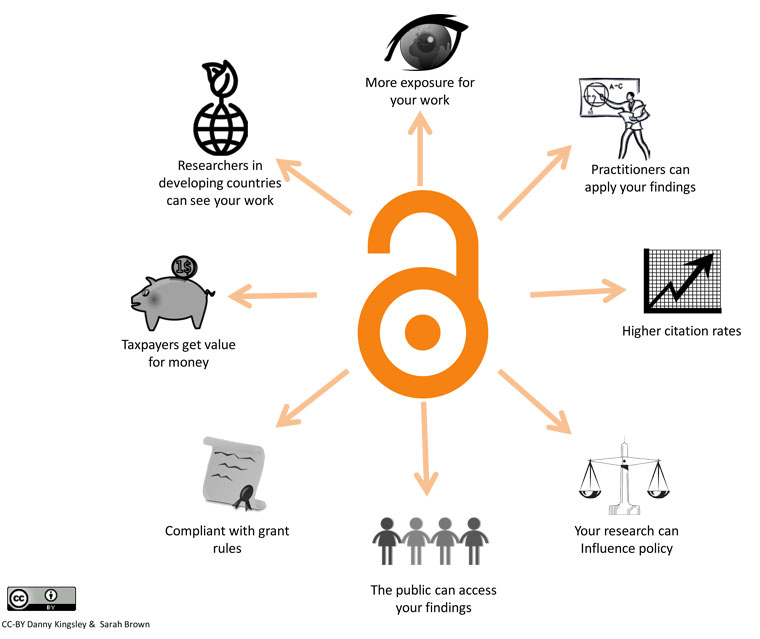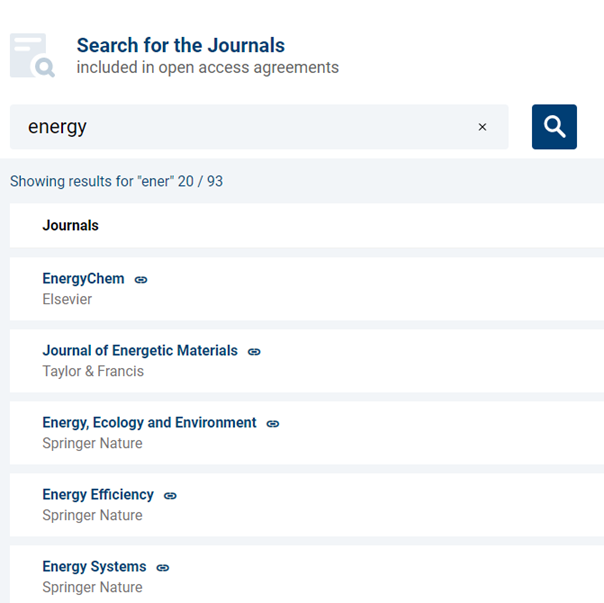 We have a new tool available that allows you to search for journals that are included in publisher open access agreements for Imperial College London-affiliated corresponding authors. You can search by journal title, ISSN, or enter a keyword and be provided with a list of journal titles containing that word.
We have a new tool available that allows you to search for journals that are included in publisher open access agreements for Imperial College London-affiliated corresponding authors. You can search by journal title, ISSN, or enter a keyword and be provided with a list of journal titles containing that word.
The tool (powered by SciFree) is part of our revamped publisher agreements and discounts webpage, which has also been reformatted for ease of navigation as the number of agreements Imperial is part of has grown. A full list of journals with fully covered APCs (.xls) is also available from the webpage to view in an Excel spreadsheet (Imperial members only).
The search tool allows users to see whether titles are included in agreements that fully cover the open access fee, offer a discount, or whether they are not covered but you can apply to the Imperial Open Access Fund (see the three examples below). Each of these icons links to instructions or further information for the relevant option.

The results also give the default open access license for the journal, and whether it is a fully open access journal, or hybrid (a subscription journal offering an open access option).
Also featured are links to the Directory of Open Access Journals (DOAJ), and an embedded version of the Plan S Journal Checker Tool (JCT). Journals listed in DOAJ are eligible for the Imperial Open Access Fund, so if your chosen journal is not part of a publisher agreement, but is listed in DOAJ, you should apply to the Imperial Fund. (Eligibility also requires that you have no access to alternative funding for open access, and that the paper is a research article). The Plan S JCT allows authors with UKRI or Wellcome Trust funding to check their options for meeting their funder’s open access requirements. Contact the open access team at openaccess@imperial.ac.uk if you need any help interpreting the search results.
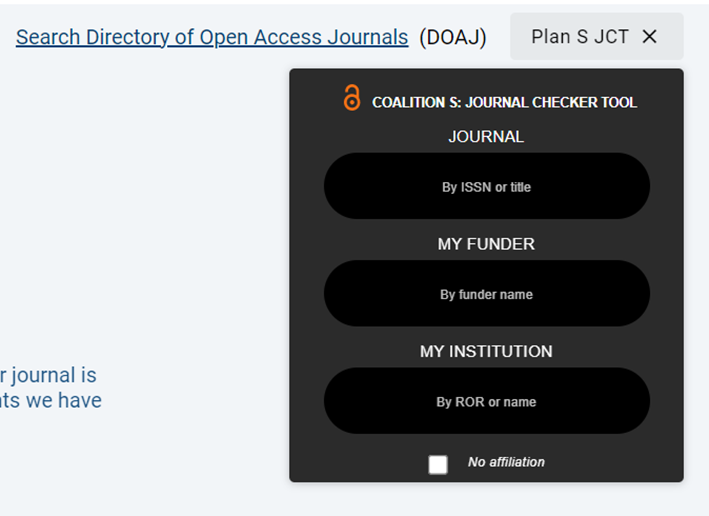
If you want to feed back on whether this search tool was helpful, or access a link to book a one-to-one training session with the open access team, you can use the chat icon at the bottom right of the page. You can also book a training session via our website, or email us at openaccess@imperial.ac.uk
We hope you find this useful!

